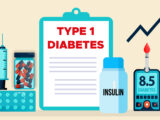
Importance of Pre-pregnancy counseling and check ups
April 29, 2021regnant women who have hypertension are at risk for many complications. Hypertension is known to cause or increase the risk of several complications during pregnancy including miscarriage, premature delivery, low birth weight, low APGAR scores, placental separation, stillborn or infant death and increased risk of uterine cancer in pregnant women. Blood pressure levels that are too high during pregnancy may affect the health of the unborn child. This is because high blood pressure can cause placental separation, miscarriages or premature delivery. The health of an expectant mother does not only encompass her physical well being but also her mental and emotional well being.
Many women experience hypertension during pregnancy for various reasons. Some women may naturally have higher blood pressure than other women. Women who have Type II diabetes, are overweight or obese, are physically inactive, have poor dietary habits or are taking medications that are known to affect blood pressure may be more likely to develop hypertension. Psychological stress, emotional distress or depression, fatigue, inadequate sleep quality, inadequate nutritional intake, smoking, alcohol use and daily routines and activities may also affect the condition. There are many other factors that may affect the development of hypertension.
When a woman gets pregnant, she needs to be evaluated annually by a doctor for any possible health conditions. This is important so that the doctor will be able to treat any existing or developing hypertension and its effects on the developing fetus. It is important that the pregnant woman undergoes prenatal and postpartum checkups. These checks will help the physician determine any existing or developing hypertension.
During a prenatal checkup the physician will ask questions about the woman’s medical history, the history of her family and other lifestyle factors. The physician will also take a physical exam of the woman’s abdomen. During this process, he will be able to note the major hormonal changes that may affect the development of hypertension. When a body is under stress or strain, it can produce more hormones that can result in greater production of the hormone, called dihydrotestosterone [DHT] in the blood stream which can accelerate the development of hypertension.
After the pre-pregnancy visit the physician will move onto the post-pregnancy visit. Here the concerns regarding the woman’s weight gain will be addressed. Women who have experienced weight gain after their pregnancy may be concerned about the potential for developing hypertension. In these cases, the physician may recommend modifications in the woman’s diet that would be beneficial in lowering her blood pressure. A regular exercise routine may also be recommended to assist in burning off the excess fats that have been accumulated in the body.
During the post-pregnancy visit the physician will again address the issue of nutrition and regular food consumption. Some women have been known to develop gestational diabetes after they deliver because of excessive sugar intake. It is important for women to monitor their sugar intake when they are pregnant as this could very well affect the body’s natural capability to process insulin and regulate blood glucose levels. Maintaining a proper and balanced diet will go a long way to preventing hypertension in women who have just given birth.










